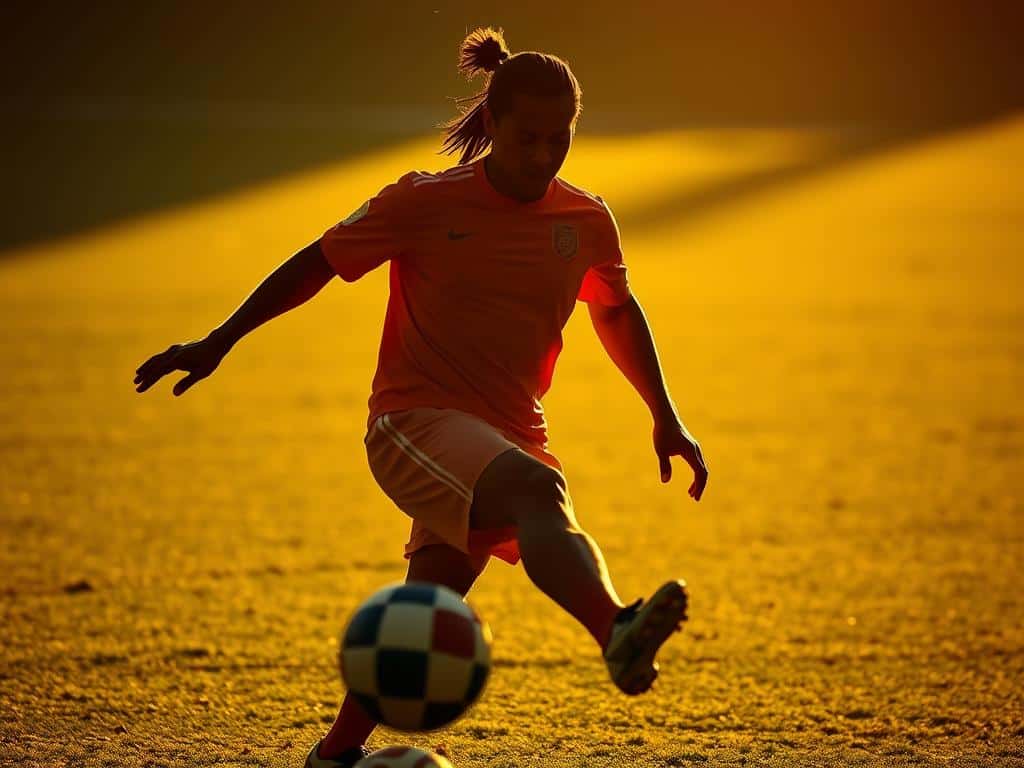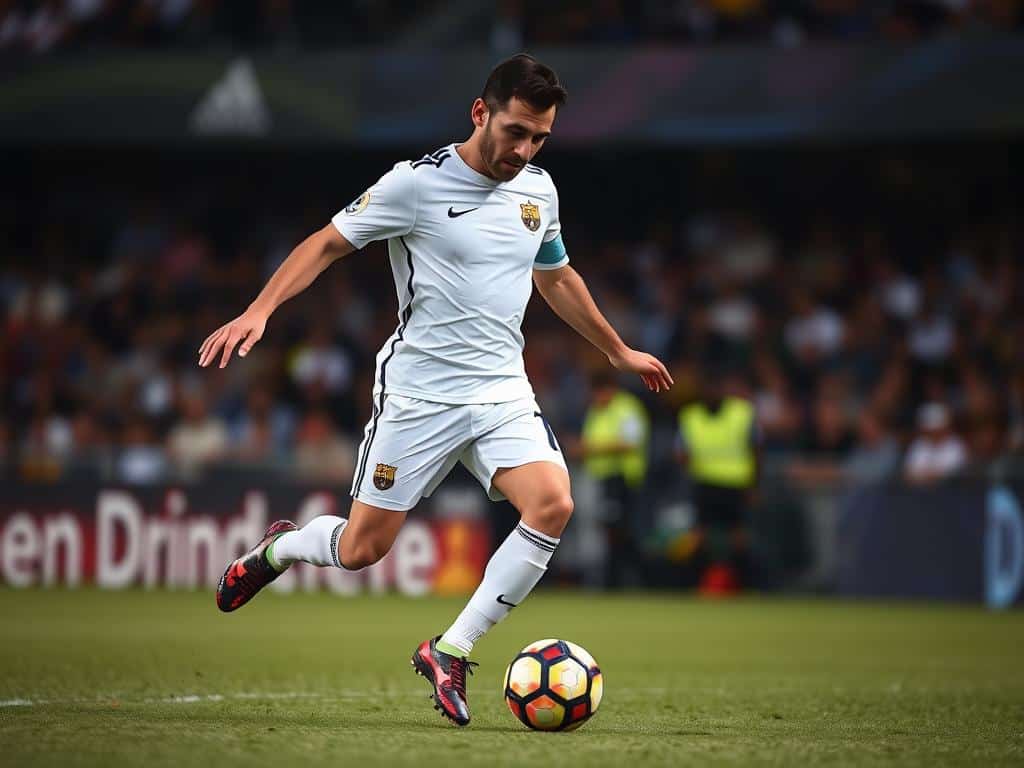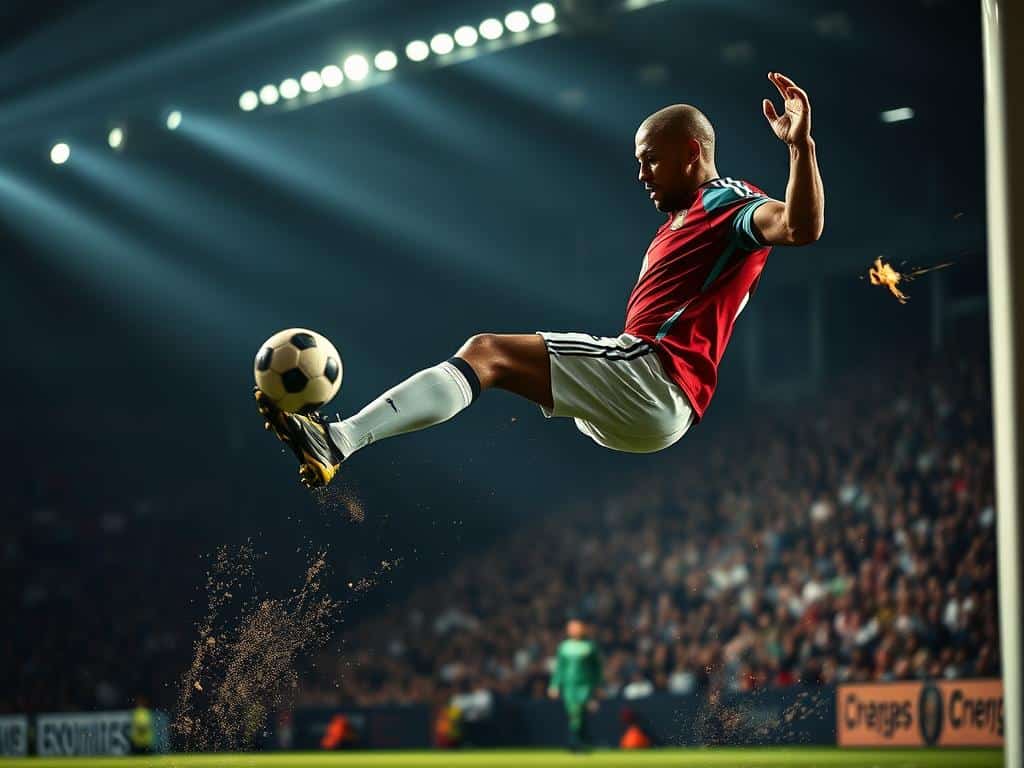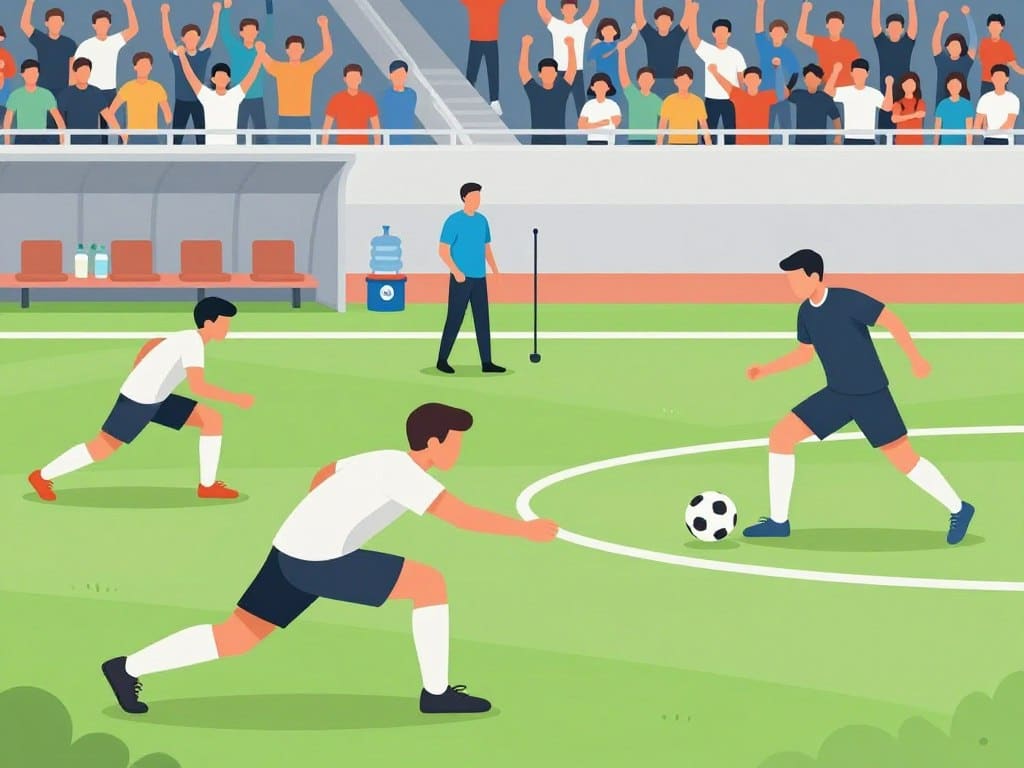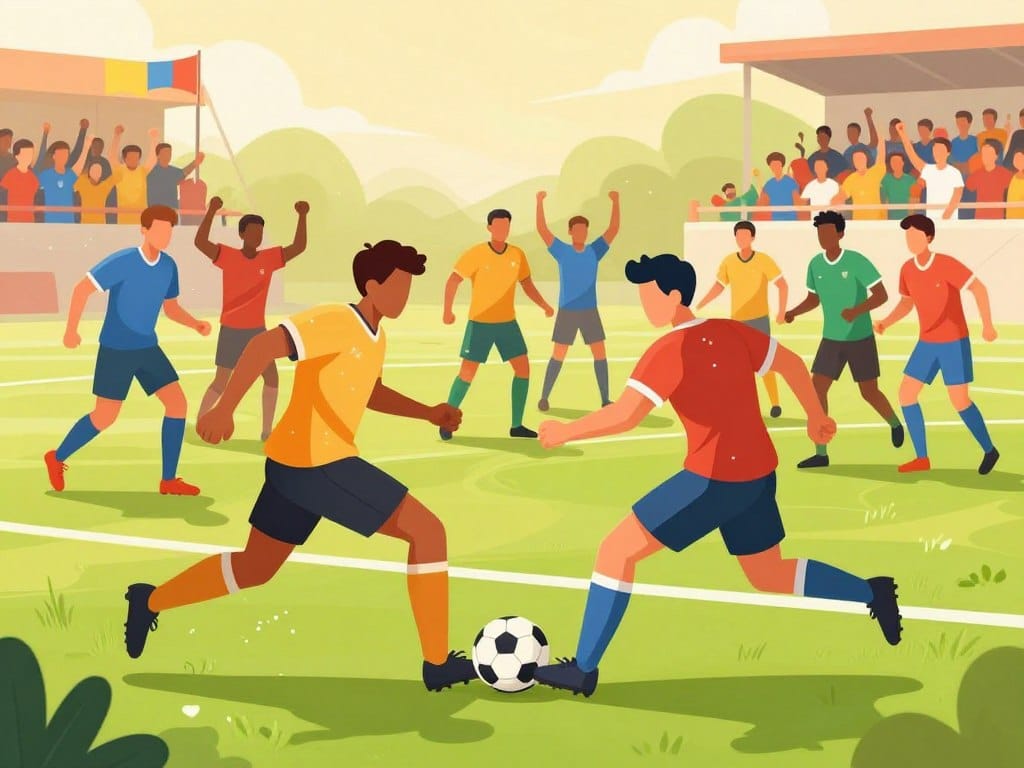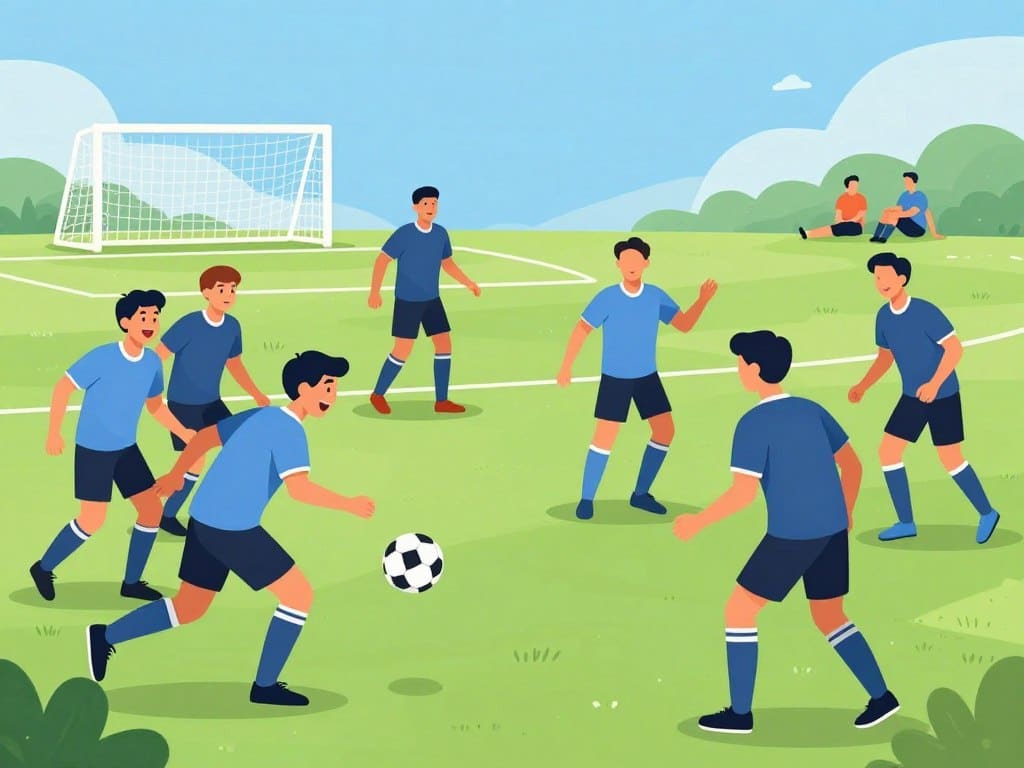Did you know that Ronaldinho’s famous elastico move inspired millions of young players worldwide? Born Ronaldo de Assis Moreira on March 21, 1980, in Brazil, he became a legendary player who redefined the game with his creativity and flair. His journey from a child prodigy to a global icon is a story of talent, hard work, and sheer joy for the sport.
Ronaldinho’s rise began at Paris Saint-Germain (PSG) in 1998, but it was his time at Barcelona that truly cemented his legacy. During his five years there, he helped the team win two La Liga titles and the UEFA Champions League in 2006. His dazzling skills and infectious smile brought a new sense of artistry to football, captivating fans across the globe.
This article dives into Ronaldinho’s life, career milestones, and the lasting impact he left on the sport. From his early days in Brazil to his unforgettable moments on the pitch, we’ll explore how his unique style and ability continue to inspire players and fans alike. Whether you’re a seasoned fan or new to the game, join us as we celebrate the brilliance of one of football’s greatest icons.
Early Life and the Making of a Legend
Growing up in Brazil, Ronaldinho’s passion for football was ignited on the dusty streets of his hometown. Born in Porto Alegre, he spent countless hours playing with friends, honing his skills and developing an intuitive feel for the ball. These early experiences laid the foundation for his extraordinary career.
Childhood and Street Football Spirit
Ronaldinho’s love for the game began in the vibrant neighborhoods of Porto Alegre. Street football was more than just a pastime—it was a way of life. Playing barefoot on uneven surfaces, he learned to adapt his style and master ball control. This environment nurtured his creativity and flair, traits that would later define his playing.
His family played a crucial role in his development. His father, a former footballer, and his brother, a professional player, inspired him to pursue his dreams. Ronaldinho’s early years were filled with joy, determination, and a relentless drive to improve.
Development at Gremio and Early European Experiences
At the age of 13, Ronaldinho joined Gremio’s youth academy. Here, his talent began to shine. Coaches and teammates quickly recognized his unique ability to read the game and execute breathtaking moves. His time at Gremio was marked by rapid growth and unforgettable performances.
In 2001, Ronaldinho made his move to Europe, signing with Paris Saint-Germain. This transition exposed him to new challenges and a higher level of competition. Despite the pressure, he thrived, showcasing his skills and earning the admiration of fans worldwide. This chapter of his life set the stage for his rise to global stardom.
ronaldinho’s impact on modern soccer
Few players have reshaped soccer as profoundly as Ronaldinho did. His playing style was a blend of creativity, spontaneity, and sheer brilliance. He didn’t just play the game; he redefined it.
Revolutionizing Playing Style
Ronaldinho’s approach to the game was revolutionary. He introduced moves like the elastico, a quick flick of the ball that left defenders stunned. His no-look passes became iconic, showcasing his incredible awareness and control.
Matches against top teams like Real Madrid and Chelsea highlighted his brilliance. His improvisation on the field challenged traditional tactics and inspired a new generation of players.
Artistic Flair and Unconventional Techniques
Ronaldinho’s artistic flair brought a sense of joy to the sport. His dribbling was not just effective but also beautiful to watch. He turned every match into a spectacle, blending skill with creativity.
His influence extends beyond his playing days. Modern training methods and tactics often reflect his innovative techniques. Ronaldinho’s legacy is a reminder that soccer is as much an art as it is a sport.
Masterful Playing Style and Signature Skills
Ronaldinho’s unique playing style redefined what it means to be a creative footballer. His signature moves and technical brilliance set him apart from his peers. Every time he stepped onto the field, he brought a sense of magic that left fans and opponents in awe.
The Magic of the Elastico and No-Look Passes
One of Ronaldinho’s most iconic moves was the elastico. This quick flick of the ball left defenders stunned and audiences cheering. It showcased his incredible ball control and creativity.
Another trademark was his no-look passes. These moments of spontaneity highlighted his awareness and vision. Whether it was a crucial match or a friendly game, Ronaldinho’s skill made every moment unforgettable.
Dribbling, Ball Control, and Field Vision
Ronaldinho’s dribbling was a blend of technique and artistry. He could weave through defenders with ease, making it look effortless. His ball control was impeccable, allowing him to execute precise moves even under pressure.
His field vision was equally remarkable. Ronaldinho could spot opportunities that others missed, delivering passes that turned the tide of a match. These qualities made him one of the most creative talents in football history.
From his time at Barcelona to his international career, Ronaldinho’s style and ability continue to inspire players today. His legacy is a testament to the beauty and excitement of the sport.
Career Milestones: Triumphs and Setbacks
Ronaldinho’s career was a rollercoaster of highs and lows, filled with unforgettable moments and challenges. From his brilliance at Barcelona to his World Cup glory, he left an indelible mark on football. Yet, his journey also faced its share of obstacles.
Barcelona Brilliance and World Cup Glory
At Barcelona, Ronaldinho reached the pinnacle of his career. He helped the club win two La Liga titles and the UEFA Champions League in 2006. His skill and creativity on the ball made him a fan favorite worldwide.
One of his most memorable moments was a standing ovation from Real Madrid fans at the Bernabeu. This rare honor highlighted his brilliance and respect across rivalries.
On the international stage, Ronaldinho played a key role in Brazil’s 2002 World Cup victory. His technique and dribbling were instrumental in securing the title, cementing his legacy as a global player.
Inconsistencies and Off-Pitch Challenges
Despite his early success, Ronaldinho’s later years were marked by inconsistencies. After leaving Barcelona, his performance declined, and he struggled to replicate his earlier form.
Off the field, he faced criticism for his lifestyle choices. These challenges often overshadowed his talent and limited his potential in the latter part of his career.
Yet, even with these setbacks, Ronaldinho’s legacy remains untarnished. His brilliance during his peak years continues to inspire fans and players alike.
Innovative Influence on Modern Football Tactics
Ronaldinho’s creativity on the field changed how teams approach attacking play. His ability to blend skill and creativity left a lasting mark on football tactics. Coaches and players alike began to rethink their strategies after witnessing his brilliance.
Transforming Offensive Roles on the Pitch
Ronaldinho redefined what it means to be an attacking player. His dribbling and ball control allowed him to break through defenses effortlessly. This inspired teams to focus on developing versatile attackers who could adapt to any situation.
At Barcelona, his role as a playmaker was pivotal. He not only scored goals but also created opportunities for his teammates. This dual threat became a blueprint for modern attacking strategies.
Impact on Future Generations and Team Strategies
Ronaldinho’s influence extends beyond his playing days. Modern coaches like Pep Guardiola have incorporated elements of his style into their tactics. Teams now emphasize fluid movement and quick passes, mirroring his approach.
His legacy is evident in players like Lionel Messi and Neymar, who continue to showcase his technique and creativity. Ronaldinho’s vision and awareness on the field have become essential qualities for the next generation of footballers.
From his iconic matches to his subtle influence on formations, Ronaldinho’s brilliance continues to shape the sport. His career serves as a reminder that innovation and artistry are at the heart of football.
Global Influence Beyond the Field
Ronaldinho’s infectious smile and vibrant personality made him more than just a footballer—he became a global icon. His charm and positivity transcended the sport, uniting fans from all corners of the world. Whether on the field or off, he brought people together through his love for the game.
Bridging Cultures and Inspiring Fans Worldwide
Ronaldinho’s style and flair resonated with diverse audiences. He didn’t just play football; he celebrated it. His ability to connect with fans from different cultures made him a beloved figure worldwide. From Brazil to Europe, Asia to Africa, his influence knew no bounds.
His off-field interactions were just as impactful. Ronaldinho often participated in charity events and global campaigns, promoting unity and joy through football. His presence at international tournaments and exhibitions elevated the sport’s global reach, inspiring millions of young fans to pursue their dreams.
Ronaldinho’s legacy extends beyond his achievements. He remains a symbol of creativity, passion, and the unifying power of football. His ability to bridge cultural divides and inspire a new generation of players ensures his place as one of the most influential figures in the history of the game.
Legacy of a Football Magician
Ronaldinho’s magic on the pitch remains unmatched, leaving a legacy that continues to inspire. From his dazzling dribbling to his iconic no-look passes, he redefined what it means to be a creative footballer. His time at Barcelona and his World Cup triumph with Brazil are testaments to his brilliance.
His playing style blended skill and creativity, influencing how the game is played today. Players like Lionel Messi and Neymar carry forward his technique, proving his impact spans generations. Ronaldinho’s ability to bring joy to the field made him a global icon.
As we celebrate his success, it’s clear that Ronaldinho’s legacy is more than just trophies. It’s about the flair and passion he brought to every match. His story reminds us that football is not just a game—it’s an art form.

